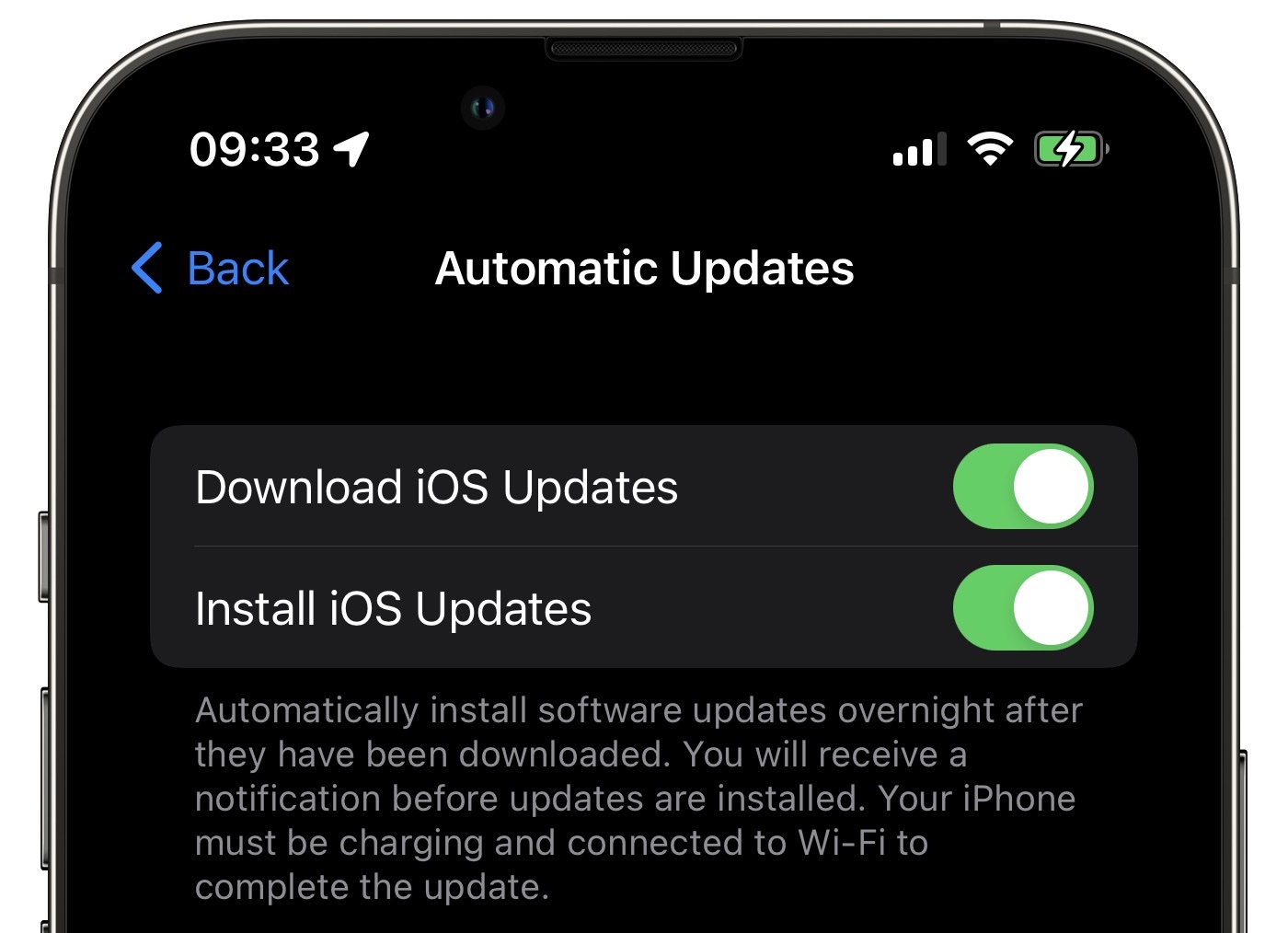
When it comes to downloading iOS software updates, Apple users can be reasonably divided into two camps: Those who manually seek out updates the moment Apple releases them, and those who are happy to let their device's Automatic Updates feature take care of everything in the background with minimal input on their part.

While it's generally acknowledged that manually tapping into Settings -> General -> Software Update is the faster option, Apple has never really explained why auto-updates tend to come through to users sometimes days or even weeks later – until now.
Interested iPhone user Mateusz Buda put this question in an email to Craig Federighi, Apple's senior VP of software engineering. In the email, Buda explained that he had turned on auto-updates, and yet after two weeks since the public release of iOS 15.4 he still hadn't received an update notification. "What conditions must be met for this function to work?" Buda asked. To his surprise, Federighi responded and was happy to explain.
Given the number of iPhones and iPads in the world, it's not hugely surprising to hear that Apple's software update strategy proceeds in a staged rollout. By implementing an intentional delay of between 1-4 weeks for users with auto-updates turned on, Apple adds a level of protection for its servers so they aren't easily overloaded when a new version of iOS is released.Hi Mateusz,
We incrementally rollout new iOS updates by first making them available for those that explicitly seek them out in Settings, and then 1-4 weeks later (after we've received feedback on the update) ramp up to rolling out devices with auto-update enabled.
Hope that helps!
- craig
Still, it's interesting to learn that Apple also considers its auto-update feature to be a safeguard when things go wrong: If early adopters report serious bugs with the software, Apple still has a window of opportunity to resolve any server-side issues or pull the update entirely before the wider user base has automatically downloaded it.
In a somewhat related point, made by several Redditors, Apple hasn't explained why some app auto-updates are also sometimes very late to be delivered to users, but perhaps the reasoning is the same: Server protection and an ability to action feedback before a wider rollout is complete.
Article Link: Apple's Craig Federighi Explains Why iOS Auto-Updates Often Arrive Several Weeks Late

